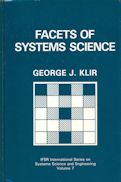Architecture of Systems Problem Solving is suitable as a textbook for a variety of courses dealing with fundamental systems concepts, major categories of systems problems, and selected methods for dealing with these problems at the first-year graduate or upper division undergraduate level. The book is also intended for practicing scientists and professionals in a wide range of disciplines, particularly those involved in multidisciplinary team projects. They will learn about modern developments in systems science, which may be utilized in their own work. In addition, the book should be a useful reference for researchers as well as practitioners in systems science and related fields on one side, and the area of expert systems on the other side. Researchers will find in the book a rich source of underdeveloped research areas; practitioners will find in it some general methodological tools of broad applicability.

